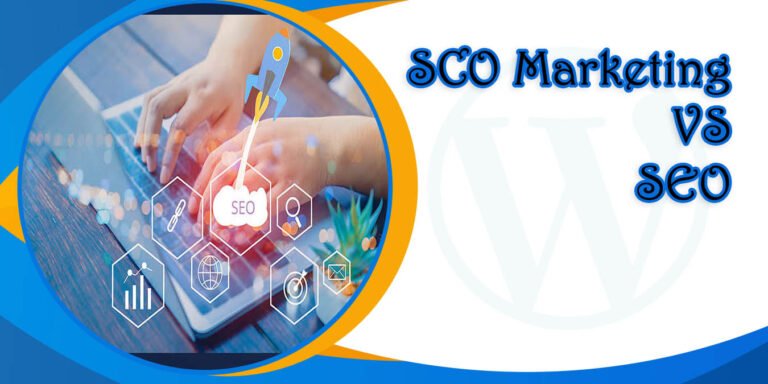Digital marketing is no more single channel business today. Still, the point of engaging audiences across the far reaches of cyberspace is to shepherd them to where leads convert: your company website. This is the only place where you are fully in control of what content, design, and appearance your audience is going to be exposed to. There’s no better place to describe in detail just who you are and what you are going to bring to your customers.
Table of Contents
However, when it comes down to endeavoring to best bring to life a 2000 mile sweeping deluge of divine dreamscape on your own WWW site, the technologically restrictive wall rears its ugly head. You can almost do anything with a website, but the performs of it is not always easy to do. That’s why so many businesses rely on Content Management Systems to build and maintain their websites.
This is because with an enterprise CMS platform, one will not need a web designer or skills in coding to design new webs or even redesign existing ones. The platform offers all you need and readily available to create a nice, fully operative and engaging website with lots of relevant and attractive content.
As you have more than 63 million websites that use a CMS today, it is challenging to compete if you are creating your site from scratch. Don’t hope for original websites to regain popular for some reason, for instance. The market for CMS is rising at a rate higher than 16% per year and is expected to reach more than 123 billion USD by 2026.
Selecting the appropriate CMS for your enterprise is a difficult task. The market is dominated by several well-known service providers who together cover a significant majority of the demand. That said, based on the purpose and scope of vision, each business can establish that a specialized platform is better suited to its needs than a widely used one. To make the process easier, let’s take a look at the current eight top Enterprise CMS systems on the market.
What is an Enterprise CMS Platform?
A CMS is a software solution which is employed for managing documents, images and other comprehensible forms of information. For organizations that have a lot of content that they need to keep properly filed a CMS can make a big difference since workers spent as much as 20% of each day looking for lost or misplaced documents.
All generic CMS features contain options for content editing and putting it into public availability on the Internet. It enables the users to create attractively designed Web sites with interactional content without having to learn HTML or any programming languages. Popular CMS platforms have features such as templates and plugins as well as other features.
It is quite feasible to categorise a CMS platform under the Enterprise CMS when it has been developed with such projects and multiple users in mind.
An Enterprise CMS solution must be able to do the following:
- Work with extensive content collections inclusive of different format files
- Organize structure resources with reference to different models of organizations.
- You should also use the content filters and tagging options, available within the Twitter search engine.
- It gives the ability to work on different documents by several users.
- Employ permissions and access settings for better control of content and data consistency.
- Generate a log file of user access and documents that have been changed
There is a tendency to equate ECM (Enterprise Content Management) solution with an Enterprise CMS platform. ECM solutions are strictly dedicated to records management. They will not always contain a CMS platform element to host and manage a site because an ECM may only be implemented for internal assets. But to target your audience of customers and potential buyers, you are going to need an Enterprise CMS for outward facing content.
Choosing the Right Enterprise CMS Platform
In the realm of CMS some dominant market players exist – for example, today, 43% of all websites are developed using WordPress. But the variety of options is even greater and this means that a CMS solution can be really found for any specific business needs.
There are some points to consider when choosing the Enterprise CMS. First of all, there is its simplicity. The good CMS platforms are tailored to be implemented across an organization and accessed by various entities within it who may not possess web design skills. In the case, where collaboration is one of your goals, you will want to be able to quickly learn how to use your CMS solution.
There is also the issue of customization While it is possible to select and work with predefined subscriptions, it is also possible to create a custom subscription if this is required for the particular business. Without an uptake for puts and takes you can’t provide very specific extension points, which makes it difficult to add or include very specific things on a site. The correct extensions shall allow you to follow the behaviors of the customer and offer them enticing content at the right times.
Additional issues are security, the possibility to export the data, the type of support which will be provided by the vendor after the purchase of the license, and the cost.
5+ Top Enterprise CMS Platforms
1. WordPress VIP
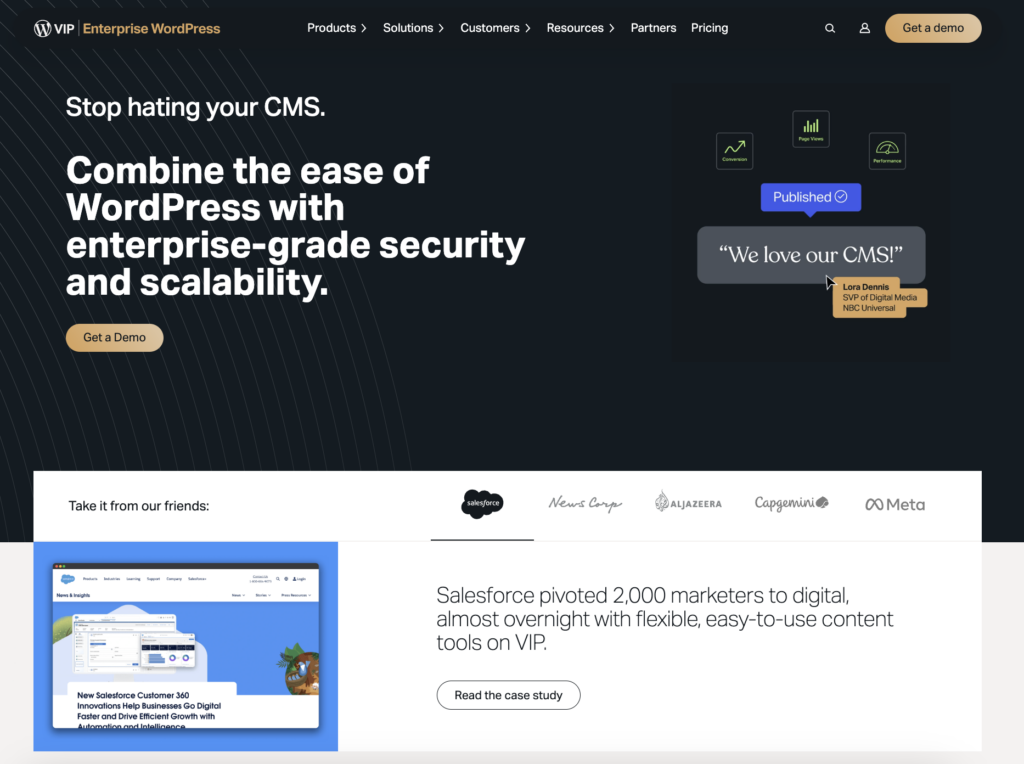
Built for the enterprise, large media sites, and government entities, WordPress VIP is WordPress-The CMS that powers 43% of the web- but it is significantly less accessible. WordPress VIP provides the ability to grow your business online, allow your team to create more content for the web, and leverage data to make iteration on content better – all while avoiding wasted time and resources on something that won’t provide optimal returns.
2. HubSpot CMS Hub

HubSpot is a special CMS platform that is powerful yet easily customizable because of the tool’s drag-and-drop functionality that allows you to build a site that can be developed in parallel with your business. CMS Hub has in-built options for SEO and A/B testing, and offers great user support while accommodating your favorite add-ons. The HubSpot CMS is one of the more expensive solutions available and this is something that could turn of some of the smaller companies. Less experienced users may complain about its restricted reporting capabilities.
3. Magento
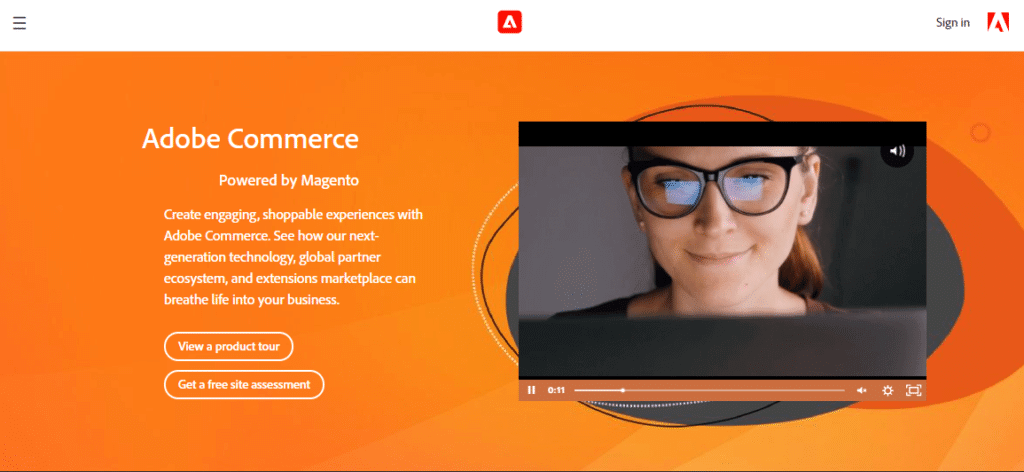
As one of the leading and more professional CMS platforms for serious ecommerce, Magento is a platform designed for the serious, high-volume merchant. Learning Curve: and yet, the security, scalability, and potential level of customization of an internal CMS may deem the pain and effort worth the reward or investment. The o/s version is free and the commercial version offers both web hosting for the site and user support.
4. Salesforce Experience Cloud
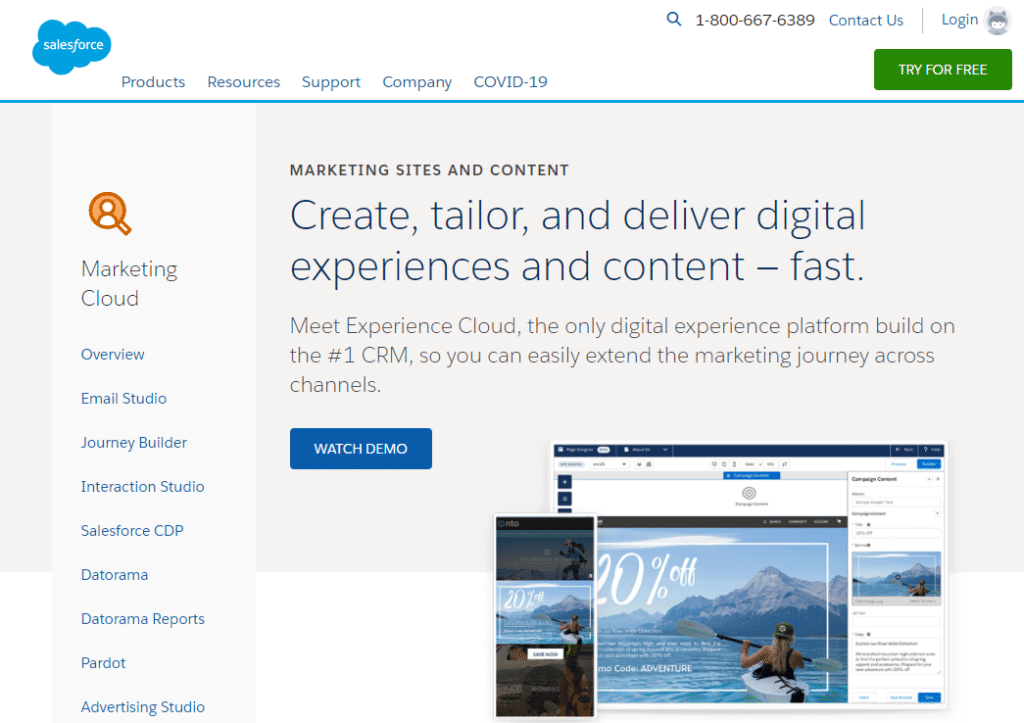
Salesforce has refreshed its new CMS solutions that are perfect for companies that operate in an omnichannel marketing environment. Its implementation might take little time to know but Salesforce CMS interacts well with developers and third-party add-ons, making the possibilities virtually limitless. This hybrid solution enables the creation of content and offer language translation capabilities aimed at creating compelling messages through all the marketing touchpoints.
5. Adobe Experience Cloud
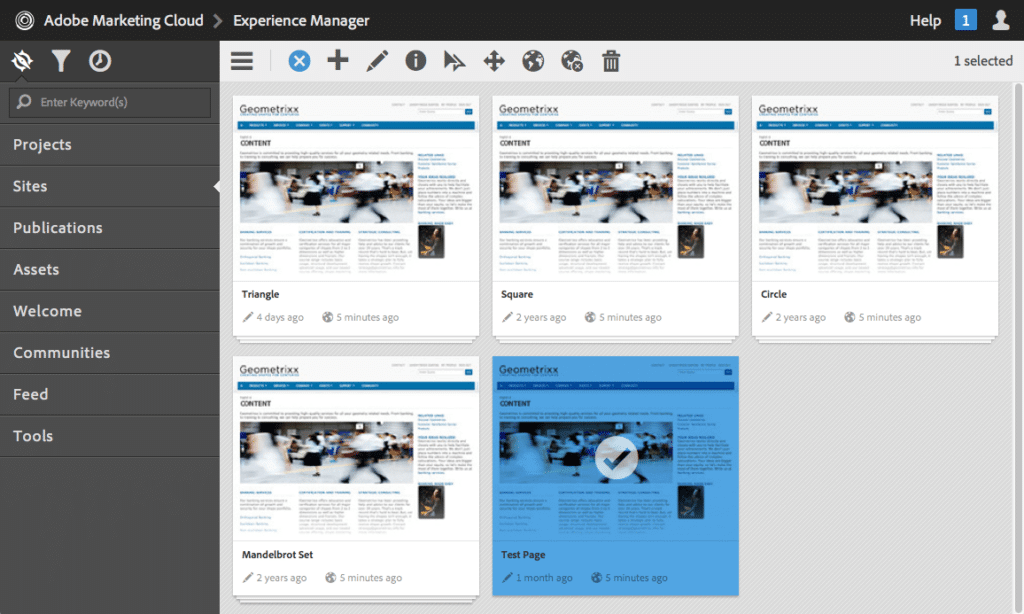
Adobe gets into the Enterprise CMS derby impeccably well and is highly malleable for handling all kinds of content. It has web content management, cross channel content, personalized experience, and even AI scalablity. The concept is also very flexible and allows for tracking of customer information so that both the experience of the visitors and decisions to complete a sale can be adjusted. While there are few disadvantages about the software, it has to be updated often and a bit of IT help is needed when you want to use the software in any model but the default one. But if your business depends on programs offered by Adobe, for instance, Creative Suite, then their CMS can be perfectly integrated.
6. Bloomreach Experience Platform

Bloomreach is a digital experience management suite, which is largely tilted toward e-commerce. To put it simply, audiences are able to create exceptional narratives from a single customer contact as much as touching or nudging them towards purchase decisions with stories that feel personal to the consumer. It also has a function which automatically enhances the scale of SEO pages in websites. The CMS has an open flexible structure, and it can handle operational tasks such as, operations or product promotion.
7. Sitecore Experience Platform
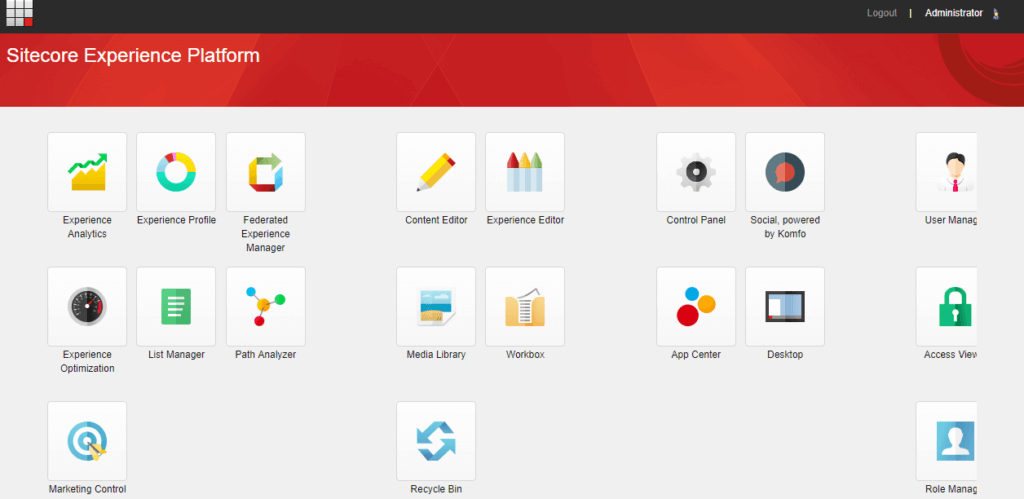
Sitecore XP is a powerful CMS that also can be connected to Sitecore’s Content Hub. HBS is ranked among the easiest to use Enterprise CMS on the market today. Some of its functionalities include, asset management, content scheduling , and a powerful UI for content editing. Among those highlights, it is possible, for example, to build individualized customer experiences in real time across any channel. However, the various sources claim that the licensing cost of the platform is high and this hampers many business from taking advantage of the tool.
8. Joomla
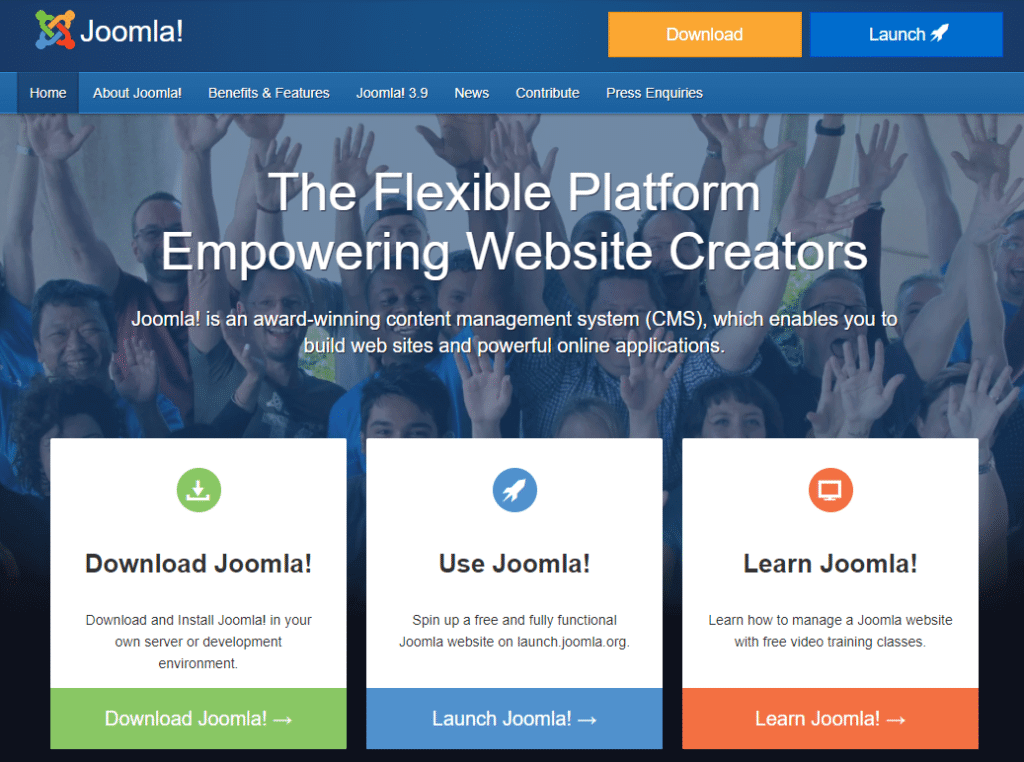
Another free CMS, Joomla is useful for sites that need content or language features with social or community elements. It has been developed since 2005, so there are may templates and add-ons designed for it, but sometimes you will come across some that are outdated.
9. Webflow
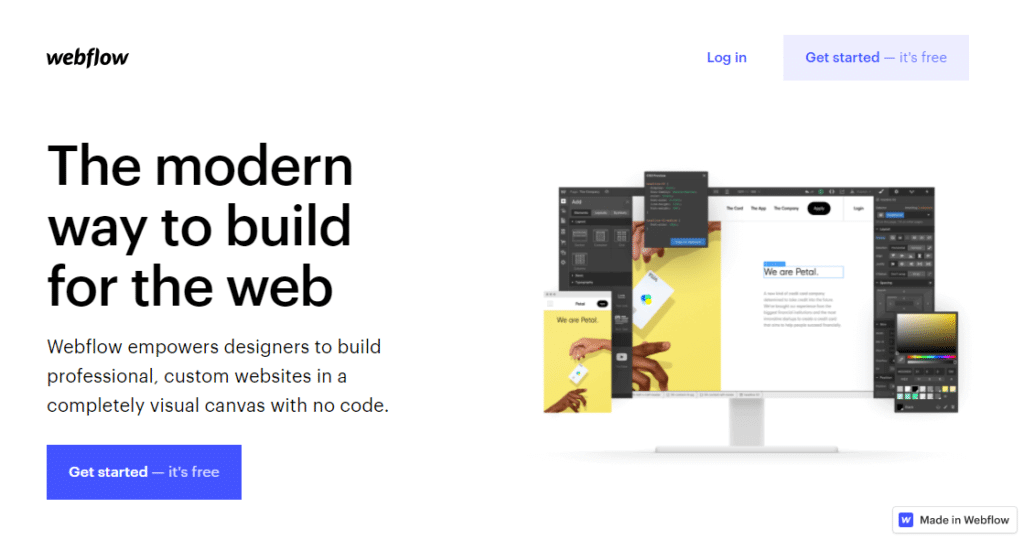
Based on Webflow as both CMS and visual web development tool, Webflow is a design solution set. It enables people who will not write code to design beautiful web sites that users will not be able to close their eyes on. Webflow has to offer a template to begin with, and the site’s editing ability and integration with other services will let you make it perfect. It will be appreciated by visionary designers, but can pose difficulties for teams since it has very few collaboration tools.
Make Your Website a Conversion Engine
It is a very fast growing industry as we see with ecommerce sites and it can be very detrimental when site updates slow because you cannot find the content you need or the content cannot be published in an efficient manner. It is the right tool to help one bypass these hurdles and maintain a vibrant and responsive Web presence.
Today’s customer additionally also requires entertaining and customised content communications delivered over his or her preferred medium of choice. Today’s businesses are asked for lots of content on a consistent basis, and they must be able to access vast amounts of material and package it in a visually compelling and explosive manner. Enterprise CMS platforms address this challenge by helping the organisation to search, review and disseminate content in the most efficient way possible. When backed by an appropriate Enterprise CMS solutions, your business website will turn into the high ROI conversion tool it needs to be.
Originally posted 2024-12-26 14:58:03.




